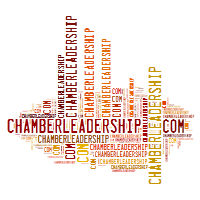Seth Mattison, Chief Movement Officer, Luminate Labs gave a presentation at ASAE's Annual Meeting last year that I attended.
What a fascinating presentation and subject matter.
Below are my notes that I thought I'd share. Change is inevitable.
Relevance - your individual relevance and your chamber's relevance. You must think about this everyday!
We need to adapt and change from time to time to stay relevant.
What are the "best of the best" doing to stay relevant - future proof yourself and your chamber to bring relevance to our organizations.
Three Characteristics:
- Past, present and the future;
- Leaders are always thinking about this and understanding the value of what has made you successful without holding on too tight that you miss what's coming next; and
- Leaders can keep their feet in the now and execute and continue to evolve to find out what's coming around the corner.
The future is being defined by two forces:
- Hierarchies - how we grew up in the workforce; and
- Networks - the current generation, no lines of authority, they grew up on the web, they don't know anything different.
Most of us grew up in the hierarchy, think staff organization charts. No debate, no discussion. You never go above your boss!
The future
Study generational shifts, study the youth, personal empowerment!
Are you moving away from hierarchies to a networked team-based organization? Studies say that's the #1 thing in today's work moving forward.
Seth says you need both, you need balance. You can't have winners and losers. Hierarchy provides security and stability and clarity but very little freedom.
Networks allow for freedom but ambiguity and uncertainty as things move and change very fast. Freedom brings responsibility and accountability.
What does the future-maker look like? The new leader leads from the center of the network.
Five key shifts I took from his presentation:
- Technology shift - you upgrade your tech tools.
- Process-shift - you need to change the process, think "that's the way we always do it."
- Experience-shift - it's about your members experience. Do you remember the term the experience economy?
- Skills-shift - half your skills will be irrelevant in 5 years. How to future proof yourself, having the ability to collectively take input and be able to give a clear vision of the future for your chamber. That's the skill every leader needs.
- Inner shift - the inner person of you must first change for your chamber to change. Otherwise, your organization will not change/shift unless you and your staff do it internally first.
Technology has hijacked our minds. Instagram has a one second delay before your notifications post. They do it on purpose.
Be present in the moment with your staff and members at the chamber.
We are always competing for our members attention. That's why our experiences for them need to be the best!
Three employee experience shapers:
- Culture;
- Workspace design; and
- Technology.
High performing jerks - they're toxic! They are culture killers. What values do you have in your organization? Are they simple to understand?
Studies show that when values are known and understood employees are 39x more likely to be engaged.
Drivers of talent engagement:
- I have confidence in senior management;
- I can own and develop my work; and
- I have confidence in the future of my organization.
He ended with four things so we can future proof yourself:
- The future is not fixed;
- Contemplate where order/freedom can and should live in your chamber;
- Commit to create remarkable experiences our customers and employees deeply value; and
- Find your way back to yourself so that you can access your greatest source of wisdom - you!




